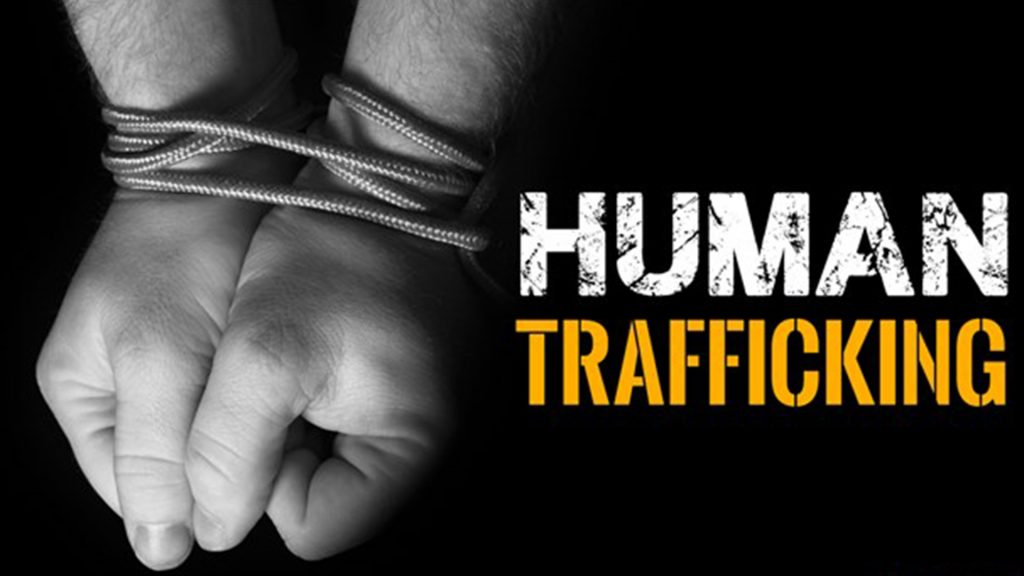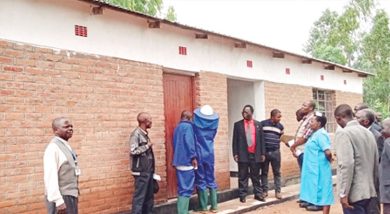Mw ranks average on US human trafficking index
The United States (US) has ranked Malawi’s fight against human trafficking as average for the third consecutive year, citing perennial weaknesses; lack of care for survivors, allegations of corruption against government officials and poor funding as major flaws.
In its 2022 Trafficking in Persons (TIP) report which assess all countries’ commitment in the fight against human trafficking, the US State Department states that based on those factors, the “government of Malawi does not fully meet the minimum standards for the elimination of trafficking but is making significant efforts to do so.

“The government did not report training law enforcement or social workers on identifying, referring and providing services to trafficking victims.
“Due to the lack of shelters and other protections, police often detained victims during the investigation process and did not take adequate measures to prevent the re-traumatisation of victims participating in criminal proceedings.
“Credible reports of official complicity continued to impede the government’s efforts to carry out anti-trafficking law enforcement efforts and proactively identify trafficking victims,” the report rants.
The US, one of the country’s major bilateral donors, states that during the reporting period between April 2021 and March 2022, unnamed “Malawian officials allegedly received payment to recruit and facilitate transport of Malawian adults and children to South Africa for forced labour in businesses privately-owned by nationals of the People’s Republic of China.”
On caring for TIP victims, the report observes that there were inadequate facilities to host them.
“Observers reported police often transported victims, particularly children, with their suspected traffickers in the same vehicle, resulting in potential intimidation and further traumatisation of victims.
“Officials occasionally placed victims in detention, due to a lack of shelter space; and in some cases, victims reportedly ran away from detention after officials failed to provide them basic needs such as food,” the report reads in part.
The US further faults the government for failure to contribute funds towards the care of the victims and ranks Malawi in Tier 2, a stanza for countries whose governments do not fully comply with all of Trafficking Victims Protection Act minimum standards, but are making significant efforts to bring themselves into compliance with those standards.
The best performers are in Tier 1 while the worst are ranked in Tier 3.
“Despite the government’s reliance on civil society organisations to provide care to trafficking victims, it did not report providing financial or in-kind support to such organisations or its allocation to the anti-trafficking fund during the reporting period,” says the report.
As well as being trafficked internally, Malawians, mostly women and girls, are transported across national borders to neighbouring Mozambique, Tanzania, and Zambia, and further afield to destinations such as South Africa, Europe, and the Middle East where they are sexually abused or overworked, the report observes.
The report seemingly blames porous borders and lack of expertise among security officers to detect human trafficking as it recommends that government “trains labour inspectors to identify potential forced labour victims during routine inspections and to report potential trafficking violations to appropriate officials.
“Develop and institutionalise mandatory pre-departure anti-trafficking training for all Malawian diplomats. Increase awareness and monitoring of trafficking crimes, as well as efforts to identify traffickers and victims at border crossings and internal police checkpoints.”
Meanwhile, Homeland Security Ministry spokesperson Maureen Nkhoma said the government has been working on the weaknesses highlighted in the TIP reports.
She said: “Malawi currently has four shelters for survivors of TIP and it is trying as much as possible to make these shelters comfortable for these survivors.
“Some government officials suspected to have a hand in TIP activities have been arrested and are answering to TIP crimes charges. Examples are a lab technician from Kamuzu Central Hospital, immigration officers and police officers.”
Furthermore, Phiri has said the ministry is appealing for “more stakeholder engagement on TIP, identifying priority areas to be addressed in line with emerging issues, public awareness on TIP, due diligence to agencies that are likely to come across TIP issues such as the Homeland Security, Ministry of Labour, police and the Department of Immigration.
“In the spirit of corporate social responsibility, the ministry is also appealing to companies, individuals and organisations to support TIP efforts. It should not only be the duty of the government.”
On its part, the Department of Immigration and Citizenship Services has blamed technology and laxity among parents as hurdles in the fight against human trafficking.
The department’s national public relations officer Pasqually Zulu in a written response on Wednesday, said: “Internet/technology (social media) have significantly impacted our efforts to stop the malpractice, a lot of victims are being deceived through various websites and social media platforms.
“Some parents are not responsible enough, they release their children upon being told false promises, not knowing that their children will in the end be exploited, such laxity again is derailing our department’s efforts to stop the vice.”
He, however, said the department has stepped up efforts to curb human trafficking through awareness and tightening security.
Said Zulu: “As a department, we have developed a rapid, pro-active capacity (ad hoc snap checks, roadblocks) to counter human trafficking syndicate in all our entry points and border line.
“We are also reaching out to communities through sensitisation campaigns because that’s where potential victims of trafficking live. In-house trainings on human trafficking have also been stepped up as a way of capacity building to all immigration officers.”
He further claimed that the enactment of Trafficking in Persons Act of 2015 has reduced human trafficking incidents.
Said Zulu: “The penalties attached to it; a lot of traffickers are scared that once caught they will languish in prison for the vice because the law is clear. So far, statistics of suspected trafficked victims who were being sent back at our airports and borders have dropped drastically. “With the sensitisation campaign in place on the evils of this modern-day slavery many stakeholders have joined the department in voicing out against the vice e.g. [government] ministries departments and agencies, non-governmental organisations, faith and community leaders.”




